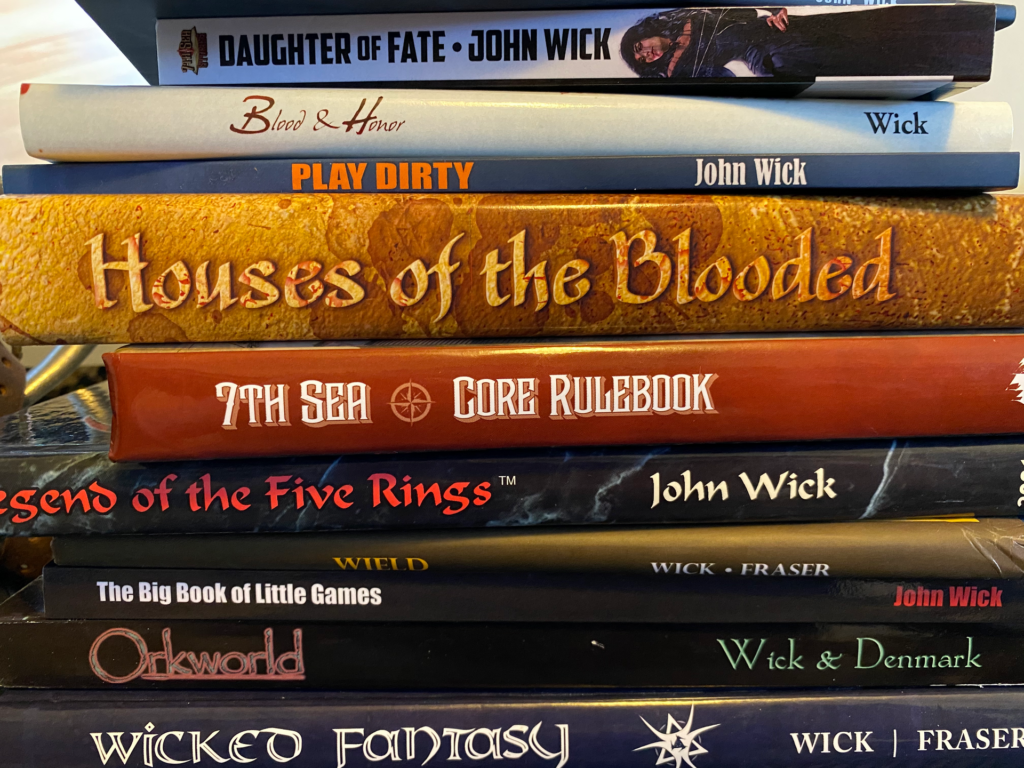
Khitai presents opportunities for heroic stories very different than the ones we see in western culture. The typical western hero is a renegade, rebelling against the corrupt tyranny of society. In the west, we distrust authority, often casting such figures and structures as villains. Think of Darth Vader and the Emperor in Star Wars, the Alliance in Firefly, or even Principal Rooney from Ferris Bueller’s Day Off. These people and entities exist as villains in the west because we, as a people, feel distrust of authority is virtuous. A citizen’s duty is to guard and monitor people and structures of authority.
However, the Eastern Hero we’ll find in Khitai has a different attitude toward those same people and structures. In Khitai, a Hero’s duty is to protect those people and structures. Think of the role of the yojimbo: a bodyguard who puts the life of his charge above his own. This is because Khitai views human institutions as representations of natural order. All the world has order: the turn of the seasons, the movement of stars, the cycle of life and death. Everything has an order, and that includes the lives and destinies of human beings. The purpose of authority is to maintain the health and welfare of its people. When all things are in balance, people and institutions work toward this goal, but when they are not in balance, people and institutions begin thinking about themselves above the welfare of others. This kind of selfish pride is often considered the worst kind of villainy in Khitai. A human who thinks she is above the natural order, thus throwing off the cosmic balance, bringing suffering and despair to others, just to nurture her own pride.
“Everything has an order, and that includes the lives and destinies of human beings.”
So, let’s return to Star Wars for a moment. For while it may appear to be the story of a Western Hero rebelling against authority, Luke Skywalker is actually an Eastern Hero trying to restore balance to a galaxy that has been thrown out of balance. The Empire could be using its power to bring peace and plenty to its people, but instead, serves the selfish needs of a very few. The Rebellion seeks a political solution to the problem, but Skywalker knows the solution is actually metaphysical. The soul of the galaxy is at stake, and the only way to save it is to redeem it. And that means redeeming the soul of his father, Anakin Skywalker: a hero who failed his own test, just as Luke is in real danger of failing his own. In the end, by casting down his weapon, Luke is willing to give his life to prove to his father that he does have light still in his soul. And his sacrifice—his unwillingness to fight the Emperor—Luke redeems his father, transforming him from Darth Vader to Anakin Skywalker again.
Han Solo, on the other hand, is the Western Hero. He’s a smuggler and a thief, dodging authority whenever he can. He doesn’t trust the Empire because it is authoritarian—as opposed to Luke who fights against it because it’s villainous. Han gets involved because he wants the money promised him, but he stays involved because of his friendship with Luke and because he’s fallen in love with Leia. And while those motivations are selfish, the outcome—the overthrow of the Empire—is still a just cause in his eyes. Solo is selfish, but he’s only selfish up to a point. He probably wouldn’t smuggle slaves, for example. He wouldn’t use his profession to protect the Empire or help it flourish. He’s still a hero, even if some of his motivations are less than heroic.

In the end, Solo represents everything we admire about the Western Hero while Luke represents everything we admire about the Eastern Hero. Han values freedom. He’s highly independent and provincial and informal. Luke values virtue, and wants to save the galaxy from something he views as morally foul. Han wants to dismantle the Empire because he believes that freedom itself is a virtue. Luke wants to dismantle the empire because he believes it doesn’t serve its people in the appropriate way.
Granted, Luke’s journey begins as a revenge quest. The Empire killed his family—both his father and his aunt and uncle—but he eventually overcomes that hate and his own personal motivations. He realizes vengeance will not solve the problem. Solo, on the other hand, maintains his personal motivations and helps overcome the Empire because his personal motivations give him the strength and courage he needs to be a hero.
And so we have the Théan Hero empowered by freedom and the Eastern Hero empowered by balance. In the end, both Heroes want the same thing: peace and harmony for all. But they get there on two separate paths. This isn’t to say that they can’t sit together at the same gaming table and fight against villainy. Just as Luke and Han fight together, so can your Théah and Khitai Heroes fight together. But they get to bicker and argue all the way, just as Han and Luke do.

7th Sea: Khitai is coming to Kickstarter October 3rd. To celebrate the first major expansion of 7th Sea’s world, we’re sharing stories and thoughts straight from the developers. We’ll be discussing people, places, magic, game systems, and what the designers themselves are most excited about! Stay tuned.
